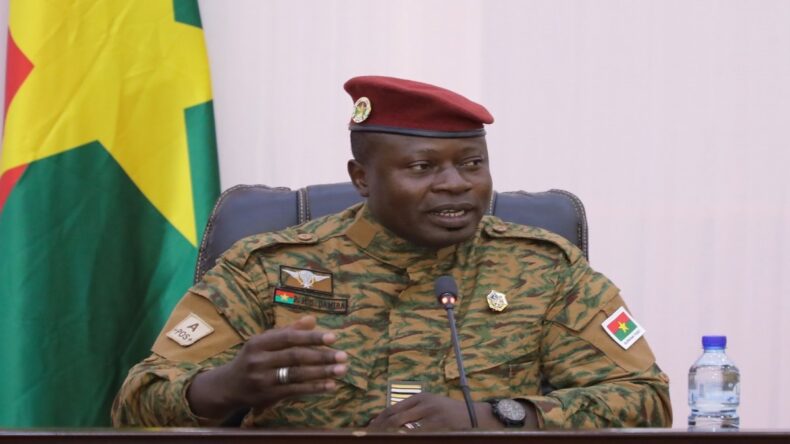Three weeks after the military coup led by Damiba overthrew the democratically elected government of Burkina Faso; his swearing-in ceremony takes place.
Roch Mare Christian Kabore, the democratically elected president, was overthrown by Lieutenant-Colonel Paul-Henri Sandaogo Damiba, who emerged as the coup leader.
It is believed that the coup started as a mutiny in a military base hosting a prison where the vital military figures that were involved in the 2015 coup attempt are imprisoned.
The inauguration ceremony at the Constitutional Court was broadcast nationally on Wednesday. It was held in a small room at the offices of the Constitutional Council in the capital, Ouagadougou.
Dressed in camouflage uniform and a red beret along with a sash in the colors of Burkina Faso’s national flag, he addressed the nation on state television after taking the oath.
He took an oath before the country’s top constitutional body to “preserve, respect, uphold and defend the constitution,” the nation’s laws, and a “fundamental act” of crucial decisions approved by the military.
He paid tribute to the security forces and the country’s population, which he said had been facing threats from extremism for more than six years now.
“Our country has always been strong during storms. That’s why these tough times must be an opportunity for us to get to better horizons,”
he said.
Roch Mare Christian Kabore was democratically elected in 2015 after a popular revolt that forced out longtime ruler Blaise Compaore.
He was re-elected in 2020, but he faced a lot of anger and discontentment over the conflict that spilled over in Mali.
According to the United Nations, this year, nearly 15 million people in Burkina Faso, Mali, and Niger will need humanitarian assistance, four million more than in 2021. The fighting has killed thousands of people.
It also forced millions from their homes across West Africa’s portion of the Sahel region because of attacks by armed groups affiliated with ISIL (ISIS) and al-Qaeda
On January 24, Damiba led disgruntled officers to force out Kabore amid public anger over his handling of the worsening security situation. He was formally determined as the president, head of state, and supreme commander of the armed forces.
An announcement by the military on January 31 confirmed that Damiba would be appointed to those roles for a transitional period and be assisted by two vice presidents.
Damiba, earlier this month, created a technical committee charged with proposing a timeline for a transitional government that will lead the country to elections. The committee will announce its proposal on how the country should return to democracy in a few weeks.
So far, the military government has received widespread support from people across Burkina Faso. The international community, however, has condemned the coup.
The country has been suspended from ECOWAS (Economic Community of West African States) and the African Union.
Both these organizations call for a fast transition to constitutional rule and Kabore, the democratic to be released. The former president is still under house arrest in Ouagadougou.
Edited By- Subbuthai Padma
Published By- Satheesh Kumar













